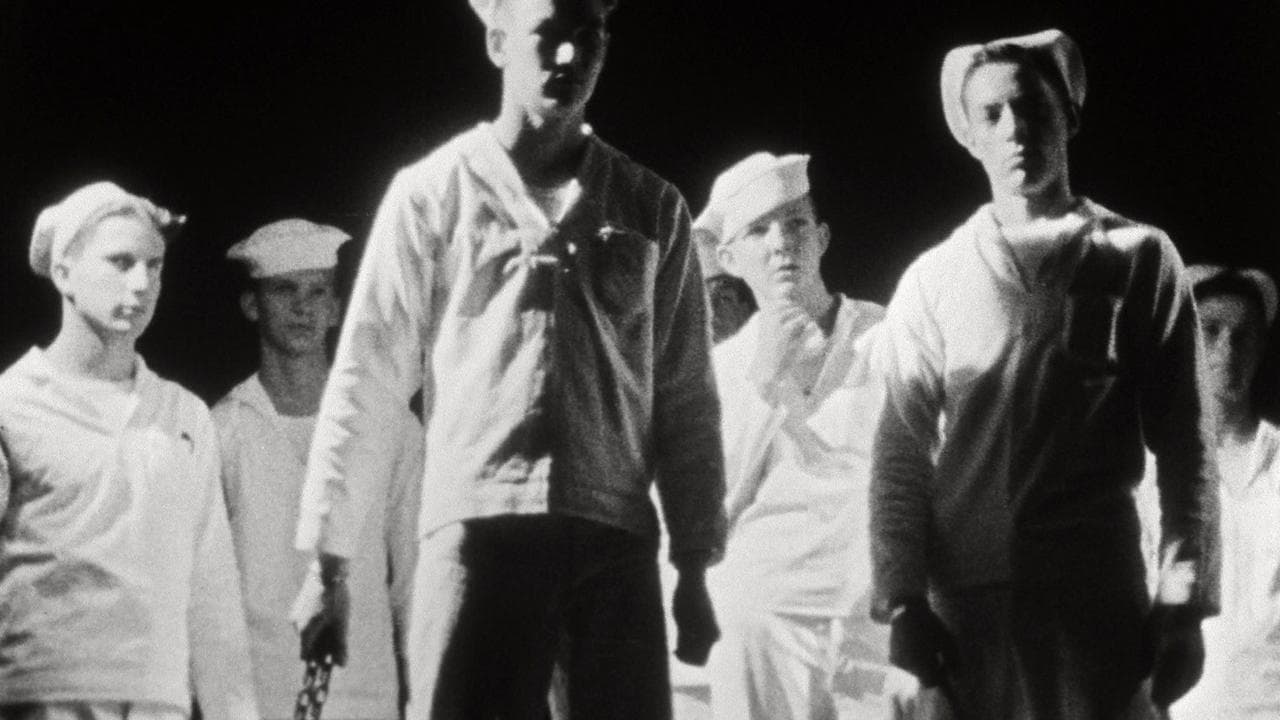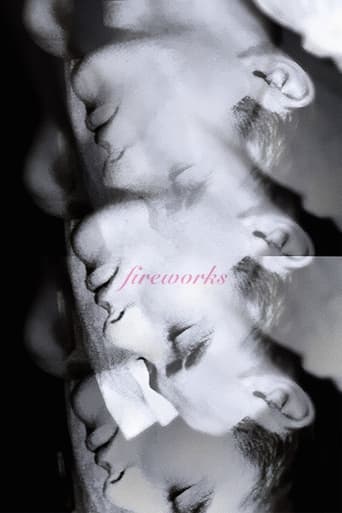



Why so much hype?
What makes it different from others?
That was an excellent one.
Each character in this movie — down to the smallest one — is an individual rather than a type, prone to spontaneous changes of mood and sometimes amusing outbursts of pettiness or ill humor.
View MoreKenneth Anger completed his first major work, 'Fireworks (1947),' at age seventeen, which I find remarkable. The film is artistically imaginative, despite employing a rather stodgy hand-held camera, and thematically mature – albeit, with a certain tongue-in-cheek approach to the material. Anger himself described the film as follows: "A dissatisfied dreamer awakes, goes out in the night seeking 'a light' and is drawn through the needle's eye. A dream of a dream, he returns to bed less empty than before." This director's synopsis makes no allusion to the homoeroticism that is most certainly present; the film plays as though Anger is acting out some deeply-entrenched masochistic fantasy in which he is confronted and raped by a pack of burly sailors. Sexual imagery is abound: a wooden statue is briefly confused with an erection; a pyrotechnic phallus presumably simulates the sensation of orgasm. Given the conservative morals of post-War America, 'Fireworks' is certainly a very bold statement of Anger's acknowledged homosexuality, especially at such a young age. Even so, the film is uncomfortable viewing. Anger's uncompromising juxtaposition of sex and violence predates such works as Ed Emshwiller's 'Thanatopsis (1962)' and Stanley Kubrick's 'A Clockwork Orange (1971).'
View MoreIt's taken me a while as a surveyor and consumer of avant-garde films to come up with a decent way to be able to tell if a particular film is actually successful or just artsy and pretentious, but I've discovered that a very good rule-of-thumb is based around how well the film holds up during a second viewing.I have been waiting a very long time for an opportunity to view Kenneth Anger's work and eagerly ordered Fantoma's first volume, and I'm glad to see that he's already living up to my expectations. He didn't at first, though. "Fireworks" started off with what felt like enough random instances and cuts to make the typical "dreamworld" pay-off. The violence in the later half and the end really intrigued me, but it felt too late in coming.Seeing it again, however, there's a lot of recurring imagery that helps fit it together, including the broken cast hand and the "Angry Jesus". In fact, this movie is a very disturbing and brooding outlook into masculinity, one that has a stronger rise too it than it initially seems. Kenneth Anger's character seems to be dealing with a general feeling of emasculation (a feeling Anger attributes to the contemporary Zoot Suit Riots) and anxiety around his sexuality... one that at some points is vaguely homo-erotic, but seem to be about ideas of masculinity in general. I think this reading of this movie is particularly telling by the way Professor Kinsey of sexual research fame was the first to buy a print of the short after its first showing.I think the best thing about this short is the shot of the still photographs burning in the fire. They strike me as a victim's way of trying to block out bad memories by purging, and Anger mentions of them that they are "the slow fading away of memories of dreams." Either way they are a liberating denouement to the earlier scenes of extreme violence (which were actually very well done as well) and help hold the film together very well.--PolarisDiB
View MoreA young man with a restless libido steps out of a fantasy world into real-life encounters that are both mercilessly brutal and profoundly liberating. Not for film school students to pick apart in class; they'll never understand it that way. This is a shudderingly intimate film that can only be grasped on an instinctual, visceral level. It is essential to be more than a mere voyeur, to empathize with the film's protagonist (a young Anger himself), and enter with him into his very personal homosexual twilight-world of fantasy. An unflinching and daringly honest examination of Anger's own take on the homoerotic myth associated with sailors, which is both surrealistic a la Luis Bunuel & Salvador Dali's Un Chien Andalou, and exquisitely ethereal, evoking one of Anger's early cinematic heroes, Jean Cocteau (compare this film to the far more subliminal Blood of a Poet for fascinating parallels). It also owes more than a passing nod in the direction of the great Jean Genet. YES it poetically glorifies homosexual violence; it does this in a way which is far less graphic than contemporary films, and if anyone is offended by this "violence" I might venture to suggest that their reaction has more to do with their discomfort with their own darker sexual fantasies, as this film has the power to touch, even open, this very private, very special place in the viewer's soul. It also surprises me, how frequently the humorous elements of the film seem to escape many reviewers.As the film is now over 50 years old, it does help to recall its historical context: when it was made, almost all gays and lesbians led fiercely closeted lives, and cowered in terror of "entrapment" (a common device employed by police to bust human beings for the "crime" of same-sex acts). For such a film to explode out of this repressive social context makes it "fireworks" indeed! And it is easy to see why the intelligentsia of the day rightly wanted to lionize the young Anger for this astonishing manifesto that comprises his official cinematic debut. Apparently a powerful scene was later edited out, depicting Anger being humiliated by his tormentors on the floor of the urinal. I wish this scene was still intact; nonetheless, even as it stands, this is one of the most powerful, beautiful, knowing films ever made about fantasy, violence, and eroticism. Amazingly, virtually every film subsequently made by Anger sustains this unique power. Kenneth Anger is truly one of the greatest American artists and filmmakers. Sadly the public focus on his Hollywood Babylon books, his controversial beliefs and life have dwarfed appreciation of his monolithic power as a filmmaker. He has influenced scores of successors and it's time to give this great artist his due.
View MoreI agree with Jean Cocteau, who said of Fireworks, "This film touches the quick of the soul, which is very rare." I also agree with Anger that Stanley Kubrick copied the volcano motif (an explosive motif related to the titular Fireworks motif) from Anger's other films and that Anger did in fact have copies of Kubrick's video store rental receipts showing that Kubrick had rented Anger's films from a NYC video store at the time Kubrick was putting the volcano motifs in his films. I feel you have to look beyond both the United States and England to find anyone who can truly appreciate Anger's contributions to world cinema.
View More